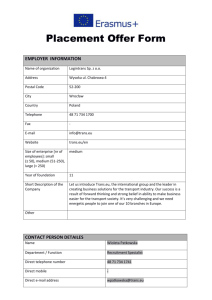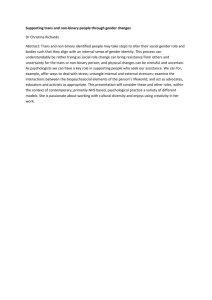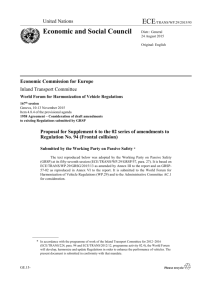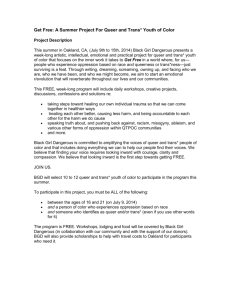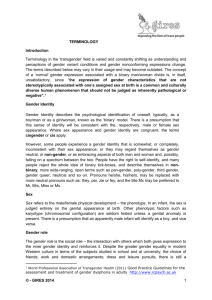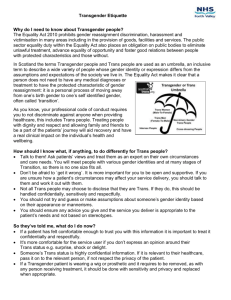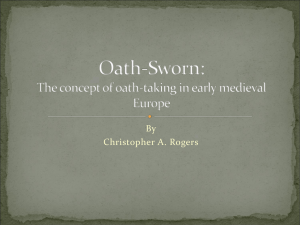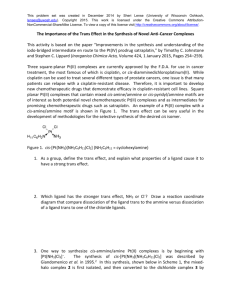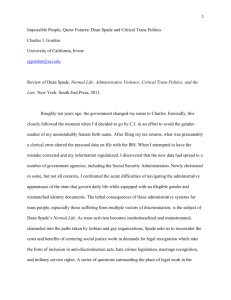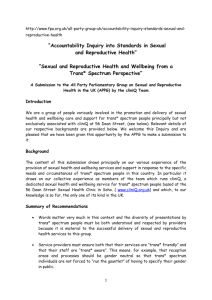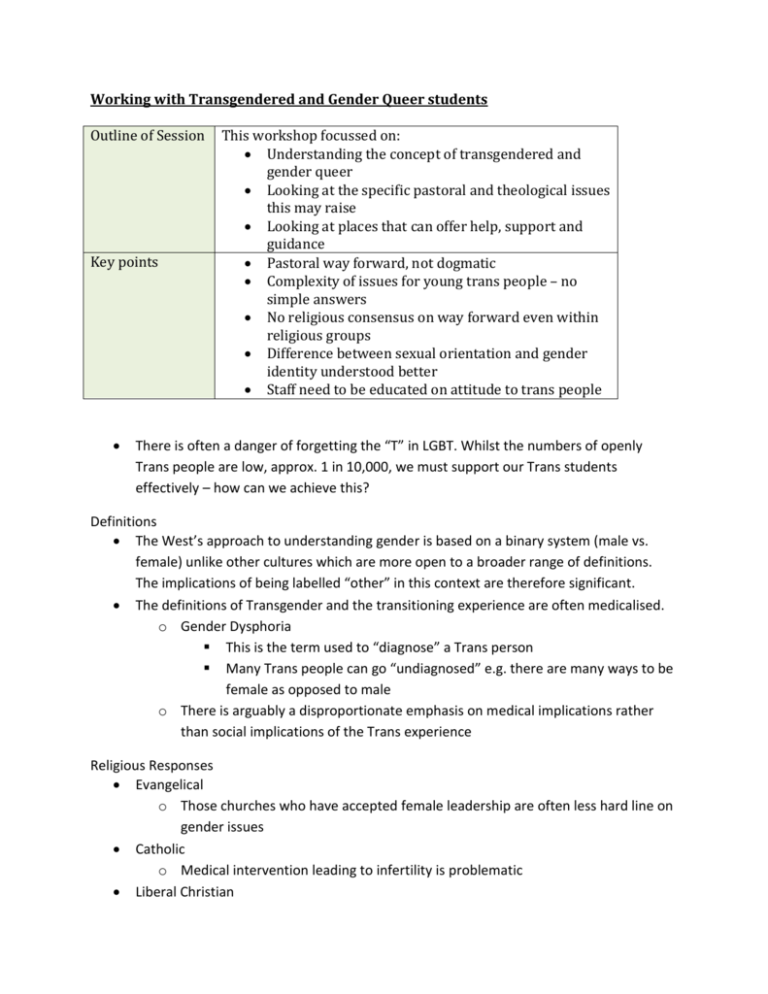
Working with Transgendered and Gender Queer students
Outline of Session
Key points
This workshop focussed on:
Understanding the concept of transgendered and
gender queer
Looking at the specific pastoral and theological issues
this may raise
Looking at places that can offer help, support and
guidance
Pastoral way forward, not dogmatic
Complexity of issues for young trans people – no
simple answers
No religious consensus on way forward even within
religious groups
Difference between sexual orientation and gender
identity understood better
Staff need to be educated on attitude to trans people
There is often a danger of forgetting the “T” in LGBT. Whilst the numbers of openly
Trans people are low, approx. 1 in 10,000, we must support our Trans students
effectively – how can we achieve this?
Definitions
The West’s approach to understanding gender is based on a binary system (male vs.
female) unlike other cultures which are more open to a broader range of definitions.
The implications of being labelled “other” in this context are therefore significant.
The definitions of Transgender and the transitioning experience are often medicalised.
o Gender Dysphoria
This is the term used to “diagnose” a Trans person
Many Trans people can go “undiagnosed” e.g. there are many ways to be
female as opposed to male
o There is arguably a disproportionate emphasis on medical implications rather
than social implications of the Trans experience
Religious Responses
Evangelical
o Those churches who have accepted female leadership are often less hard line on
gender issues
Catholic
o Medical intervention leading to infertility is problematic
Liberal Christian
o “How do we manage the ‘problem’ in order to be fair?”
o Toleration rather than Celebration
What are the responses of other religious traditions?
o Relatively little work being done/communicated in this area
Conclusion: It’s ok to feel uncomfortable, but deal with your own discomfort in such a
way that it doesn’t impact on the individual you are supporting/interacting with.
Gender Identity and Presentation
Puberty and adolescence is often a traumatic period for Trans people.
Self-censoring becomes normative behaviour
Trauma of dealing with family responses to presentation
Suicide, self-harm, drug and alcohol abuse is disproportionately high amongst Trans
young people.
Sexual Orientation
Confused gender is often associated with sexual orientation which is unhelpful.
However, transitioning can lead to confusion around sexual orientation as an
individual settles into their gender presentation.
Original relationships are often maintained but will change e.g. marriages are
annulled and become civil partnerships due to the legal system.
HE context
Transition often occurs during university years. This can be a challenging experience
for both the individual and classmates.
Students often look to the clergy for a lead on how to behave. We therefore need
leadership in this context on what is fair behaviour.
The freedom and lack of limits that university offers can lead to danger e.g. access to
drink/drugs, etc
Trans people often will not register with a local GP at university in order to retain
their place on the waiting list for treatment with the original NHS Trust with whom
they are transitioning. This makes accessing medical treatment and counselling at
university very challenging.
Vulnerability
Negative responses by parents:
o Parents will often be mourning the loss of the child they thought they had
Friendships become conditional
LGBT academics can find dealing with trans students problematic for fear of being
“outed”
Trans people find securing employment problematic due to discrimination
Trans people are often isolated within LGB community
o Often directed towards the LGBT community for support but not necessarily
welcome/understood
o Fear of being “the only trans in the village”
o Discomfort/discrimination by LGB community towards trans people e.g.
negotiating sexual relationships/political issues in accepting trans people into
the fold
Social location can impact on transition e.g. if the individual is from a middle class
background they are more likely to have family support and are more likely to be
confident in negotiating systems and to access support.
Passing
It is vital that you immediately accept the gender that a trans individual presents to you
e.g. their name.
Many trans people no longer wish to identify themselves as trans at the end of the
transition process. This can be expressed by individuals cutting off those people
associated with the transition process and that period in their life.
Problems with HE bureaucracy e.g. computer systems that will only recognise Male or
Female when registering students.
Pastoral Guidelines
Actively listen – empathise
Respect privacy and maintain confidentiality (even if you think sharing information with
colleagues will help the individual access support)
Don’t judge
Don’t jump to conclusions
Examine church/religious teaching in your tradition
Try to find out what the specialists are saying
Refer to specialists when you feel out of your depth
Accept people as they are; let the holy spirit be their guide
If someone transitions, it may be a management issue
Transphobia does serious harm

